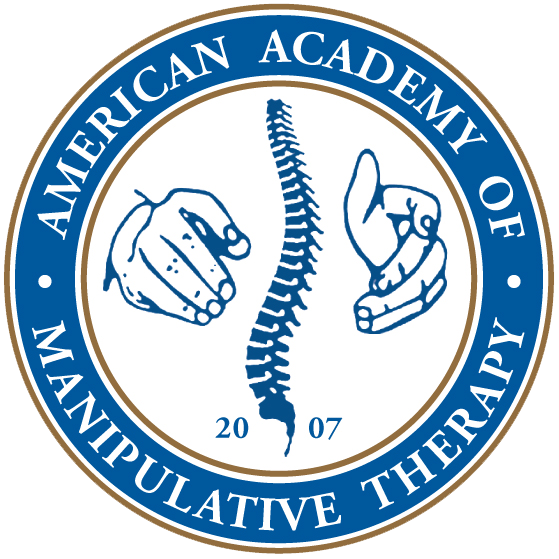APTA & ABPTRFE’s New Fellowship Admission Criteria Appears to Violate the Sherman Act: Anti-Competitive & Impending Damage to Fellowship Programs
Based on AAMT’s review, it appears that ABPTRFE’s 2018 Quality Standards violate Section 1 of the Sherman Act. See 15 U.S.C. §1 et al. More specifically, the new admissions criteria for fellowship programs (explained infra) are not based on quantitative evidence and will result in injury to American Academy of Orthopaedic Manual Physical Therapist (“AAOMPT”) fellowship programs, to consumers, and to the public in general. It appears ABPTRFE and APTA have unlawfully conspired to adopt anticompetitive admission requirements that intentionally siphon physical therapists to APTA’s residency programs and lucrative standardized written tests and away from respected third party clinical education programs (i.e. non-APTA sponsored and independent certifications in orthopaedic manual therapy that have been, and are currently, offered by various continuing education companies or third party institutions, e.g., MTC, COMT, Cert. SMT).
Prior to taking any legal action, AAMT is reaching out to ABPTRFE in the hope that the parties can reach an amicable resolution of this matter. Specifically, AAMT requests that ABPTRFE reincorporate the Skills Track as an admission criterion for the reasons discussed in detail in this letter. The recruitment for qualified physical therapist applicants for admission to the 2019 AAMT Fellowship cohort begins April 15, 2018; therefore, in order to avoid an impending damages claim, the Skills Track needs to be reincorporated within 60 days. We ask that ABPTRFE respond to this letter by March 7, 2018 either to notify AAMT of their decision to reincorporate the Skills Track or with a substantive response that includes the objective evidence that allegedly supports the admissions criteria change.
HISTORY OF AAOMPT & ABPTRFE ACCREDITED FELLOWSHIP PROGRAMS
AAOMPT was founded in Rochester, Michigan in 1991 and was instrumental in the preparation of the successful application of the United States to become a voting member of the International Federation of Orthopaedic Manipulative Therapists (“IFOMPT”). Included in the IFOMPT application were Standards for Orthopaedic Manual Physical Therapy (“OMPT”) Residency Training in the United States. Prior to ABPTRFE’s recently promulgated 2018 Quality Standards, these standards formed the basis for OMPT Fellowship programs which are credentialed by APTA and recognized by AAOMPT.
As you know, from 2001-2017, ABPTRFE accredited AAOMPT fellowship programs could admit students who met one of three criteria: (1) ABPTS specialist certification in the related area of specialty (the “APTA Test Track”); (2) completion of an APTA accredited residency in a related specialty area (the “APTA Residency Track”); or (3) demonstrable clinical skills within a particular specialty area (the “Skills Track”). This set of admissions criteria was successful for many years. The Skills Track is particularly important to AAOMPT fellowship programs because of the specialty’s clinical focus.
Nevertheless, last year, for some unknown and unsupported reason, ABPTRFE implemented its 2018 Quality Standards which, among other things, changed the admission criteria for entry into fellowship programs by eliminating the Skills Track. The 2018 Quality Standards were effective January 1, 2018 and all currently accredited programs must comply with them by January 1, 2019.
The 2018 Quality Standards also make other changes such as reducing the mentorship hour requirement from 130 hours to 75 hours and eliminating the requirement that the mentoring faculty be a Fellow of AAOMPT. As such, an individual can serve as a mentor even though she has not graduated from an APTA accredited fellowship or residency or taken one of APTA’s tests. This means fellows-in-training could receive mentorship from therapists that would not even qualify for admission into an ABPTRFE-accredited fellowship program. AAMT does not understand why mentors are not required to meet the same criteria as the people they will be mentoring. This internal inconsistency highlights that the new standards are not supported by objective evidence and are likely part of an anticompetitive and self-serving scheme between ABPTRFE and APTA.
ABPTRFE JUSTIFICATION FOR THE 2018 QUALITY STANDARDS
According to ABPTRFE, when APTA created the original fellowship program admission criteria in 2001 there were a small number of accredited residency programs and board certified specialists, so those with specialist-level knowledge and skills were admitted, despite not undergoing residency training or board certification. Because the number of graduates and board certified specialists has allegedly grown “exponentially”, ABPTRFE now asserts, without providing any underlying support, that it is the appropriate time to require board certification or residency training prior to fellowship training.
AAMT & AAOMPT REQUEST INFORMATION CONCERNING CHANGE
AAMT’s Director, Dr. James Dunning, contacted ABPTRFE on April 19, 2017 to express his concerns with the new admissions criteria and to request an opportunity to discuss the matter. ABPTRFE never responded to this written request. Subsequently, AAOMPT sent ABPTRFE letters on October 24, 2017 and November 19, 2017 explaining that 77% of AAOMPT program directors were opposed to the new admissions criteria given the current timeline and 66% were opposed from a philosophical perspective (October 24, 2017 and November 19, 2017 letters from AAOMPT to ABPTRFE). In the November 19, 2017 letter from AAOMPT to ABPTRFE, AAOMPT specifically explained that the new admissions criteria will:
“limit the number of potential candidates to an unsustainable degree, decrease the diversity of applicants such that only those who can afford to take the exam or complete a residency will be part of the applicant pool, limit individuals who have certifications in manual therapy with appropriate clinical experience from applying, and that the timeline for the new admissions criteria is too rapid.”
ABPTRFE responded two days later in the November 21, 2017 letter from ABPTRFE to AAOMPT, offering no meaningful justification but refusing to adjust the new admissions criteria:
“While we understand the concern amongst some program directors regarding the compliance date for these new standards, ABPTRFE continues to uphold the implementation and compliance dates related to the admissions criteria for fellowship programs. We understand that this is a significant change to the admission criteria, but believe the change is warranted to uphold the quality of postprofessional fellowship education and aligns with best practices among professions as the formal pathway to professional growth and development.”
SHERMAN ACT § 1
Section 1 of the Sherman Act provides: “Every contract, combination in the form of trust or otherwise, or conspiracy, in restraint of trade or commerce among the several States, or with foreign nations, is declared to be illegal.” 15 U.S.C. § 1. “In order to state a claim under section 1 of the Sherman Act, a plaintiff must show that the defendants (1) engaged in a conspiracy (2) that restrained trade (3) in a particular market.” Tunica Web. Adver. v. Tunica Casino Operators Ass’n, Inc., 496 F.3d 403, 409 (5th Cir. 2007). A plaintiff has standing to bring an antitrust claim if it can show “the threat of injury [is] both real and immediate,” and certainly if it can show it is “impending.” Essence, Inc. v. City of Fed. Heights, 285 F.3d 1272, 1282 (10th Cir. 2002) (internal quotation marks omitted); see also Ross v. Bank of America, 524 F.3d 217 (2nd Cir. 2008) (noting “[i]njury in fact is a low threshold … [and] may simply be the fear or anxiety of future harm”) (internal quotation marks omitted).
1. CONSPIRACY
To prove conspiracy, a plaintiff must prove the defendants had a “conscious commitment to a common scheme designed to achieve an unlawful objective.” Spectators’ Commc’n Network Inc. v. Colonial Country Club, 253 F.3d 215, 220 (5th Cir. 2001) (citing Monsanto Co. v. Spray-Rite Serv. Corp., 465 U.S. 752, 768 (1984)). Here, despite repeated requests from multiple parties, ABPTRFE has not provided any evidence substantiating the admissions standards change. As such, it appears that ABPTRFE and its Board members made the change either to provide financial gain to APTA (i.e., by dropping the third admissions criteria, fellowship applicants will need to either enroll in an APTA residency program or take the APTA sponsored, 6-hour, $2,385 written OCS exam), to cement ABPTRFE’s impending vote at the APTA Board of directors, to minimize, force out, or exclude a certain class of fellowship applicants from APTA accredited fellowships, and/or to diminish AAOMPT’s relevance within APTA.
ABPTRFE’s stated reasons for the admissions criteria change – (1) to uphold the quality of postprofessional fellowship education, (2) because the number of residency graduates and board certified specialists has grown, and (3) because it aligns with best practices among professions as the formal pathway to professional growth and development – do not pass muster. First, as previously mentioned, despite repeated requests, ABPTRFE has not provided any evidence that this change will “uphold the quality of postprofessional fellowship education.” Quite the contrary, the change will reduce the quantity and quality of the applicant pool by excluding Skills Track applicants. If ABPTRFE is in possession of data that shows this measure will “uphold the quality of postprofessional fellowship education” we invite you to provide it to us for review.
Second, even if the number of residency graduates and board certified specialists has grown since 2001, that does not justify eliminating the Skills Track. Such an argument assumes that residency graduates and board certified specialists will actually apply for a fellowship. However, the results of the survey completed by all AAOMPT Fellowship Program Directors and AAMT’s data (discussed below) shows that the majority of fellows did not complete a residency or become board certified prior to entering the fellowship. Thus, eliminating the Skills Track will simply reduce the number of qualified applicants.
Finally, whether the change aligns with the practices of other professions does not justify the elimination of the Skills Track, especially when that track supplies a critical pool of applicants that provide an extremely valuable service to the public. Regardless of how the 2018 Quality Standards line up with other professions in the United States, the changes will severely harm the AAOMPT credential because the 2018 Quality Standards do not meet IFOMPT standards. As a result, AAOMPT practitioners will be left with a two-tiered fellowship credential system where APTA’s credential will not be as highly regarded as the IFOMPT recognized FAAOMPT credential. This will lead to public confusion and the potential lack of reciprocity with other countries. ABPTRFE’s elimination of the Skills Track and its attempt to streamline all fellowships emaciates the heart of OMPT education and practice and runs afoul of established AAOMPT and IFOMPT standards which 17 countries and 12 registered interest groups agree are the minimum criteria for advanced practice within the OMPT specialty area.
2. RESTRAINT OF TRADE IN A PARTICULAR MARKET
To show a restraint of trade, a plaintiff must demonstrate that the defendant’s actions “had an actual adverse effect on competition as a whole in the relevant market.” United States v. Am. Express Co., 838 F.3d 179, 194 (2d Cir. 2016). Here, the relevant market is the market for nationally recognized and accredited physical therapy fellowship programs in the United States. Currently, 50 fellowship programs are accredited by APTA. The majority of those programs (31 of the 50, or 62%) are within the OMPT specialty. Taking AAMT as one example, of the 62 applicants it admitted for its March 2018 cohort, only 9 (or 14.5%) of them would have qualified under ABPTRFE’s new admissions criteria. Based on 2018 figures, AAMT stands to lose 85.5% of its qualified applicants under the new standards. Over its five-year history, AAMT has admitted 149 physical therapists into the AAMT Fellowship. Only 5 (3.4%) had already completed a residency and only 31 (20.8%) had taken/passed the OCS exam before being admitted. Thus, taking current and historical information together, only 24.2% (36 of 149 participants/graduates) of the AAMT Fellowship meet the new admission criteria put forth by ABPTRFE. As such, AAMT will almost certainly experience a 75.8% drop in enrollment going forward. There is no question ABPTRFE’s new admissions criteria will have “an actual adverse effect on competition as a whole” within the APTA accredited physical therapy fellowship program market. This is very troubling given that ABPTRFE has not offered any objective reasons for making this change.
3. INJURY IN FACT
A plaintiff has standing to bring an antitrust claim if it can show “the threat of injury [is] both real and immediate,” and certainly if it can show it is “impending.” Essence, Inc. v. City of Fed. Heights, 285 F.3d 1272, 1282 (10th Cir. 2002) (internal quotation marks omitted); see also Ross v. Bank of America, 524 F.3d 217 (2nd Cir. 2008) (noting “[i]njury in fact is a low threshold … [and] may simply be the fear or anxiety of future harm”) (internal quotation marks omitted).
As mentioned previously, just as an example, AAMT stands to lose at least 75.8%, and as much as 85.5%, of its applicant pool as a result of the new admissions standards. These drops demonstrate injury in fact and illustrate that the changes will cause irreparable harm to AAMT and other AAOMPT fellowship programs. The admission criteria changes also harm AAMT and other members of AAOMPT by diminishing the relevance of AAOMPT fellowship programs within APTA. Such radical declines in qualified applicants begs the question of whether ABPTRFE’s admissions criteria change is intended to uphold the quality of the profession or instead harm AAOMPT fellowship programs.
SUMMARY
AAMT strongly urges ABPTRFE to amend the 2018 Quality Standards to reincorporate the Skills Track as the third path for admission to a fellowship program. We look forward to hearing from ABPTRFE by March 7, 2018. While AAMT prefers to resolve this matter amicably, we reserve the right to take any and all actions, including legal action, necessary to protect the AAMT Fellowship program.







